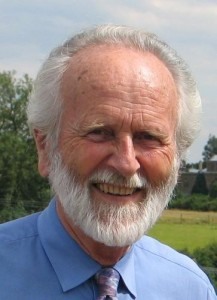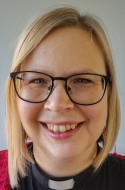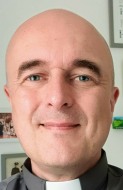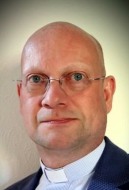Speaking Christian
by Marcus Borg
248pp SPCK 2011 £9.99
Words change their meanings and their usage over the course of time. The word “gay” for instance has changed within our lifetimes (well, many of our lifetimes!). The word “tidy” used to mean “timely, excellent” until about 1700 (that's my excuse anyway!). Likewise biblical words which are in common currency today have sometimes drifted in meaning over the centuries. Marcus Borg, as an outstanding biblical scholar, has charted many of these changes in this engaging book and the results of his work are revealing. For example, how far do modern understandings of the words “believe” and “faith” correspond to biblical usage? What about the meanings of “sin”,“salvation” and “heaven”? Does the modern tendency to take words or concepts in their literal sense always follow the intentions of the biblical authors?
The author challenges the negative connotations many words still carry today, and draws on the Bible to find meanings which reflect more closely the original teachings of Jesus, in the process discovering a remarkably positive and inspiring message. Borg may be primarily a scholar but his writings are most readable and his insights have inspired many. A typical comment is “I wouldn't be in the church today if I hadn't come across your books”.
Do you ever find “churchy” language a problem? If so, this book is for you.
David Tidy
 We often sing Fred Kaan’s hymns on Sundays. There are a dozen of them in Singing the Faith; I rather think they are sung more often than their mere number might suggest, perhaps because he addresses the problems and concerns of the modern world in away which resonates with congregations today. His skill in contemporary hymn writing has served too as a stimulus for a new generation of hymnwriters like Brian Wren, Graham Maule and Fred Pratt Green.
We often sing Fred Kaan’s hymns on Sundays. There are a dozen of them in Singing the Faith; I rather think they are sung more often than their mere number might suggest, perhaps because he addresses the problems and concerns of the modern world in away which resonates with congregations today. His skill in contemporary hymn writing has served too as a stimulus for a new generation of hymnwriters like Brian Wren, Graham Maule and Fred Pratt Green.
Fred’s life and beliefs were much influenced by his younger days. He was born in Holland in 1929 and in his teenage years he lived through the brutality of the Nazi occupation. His parents were committed anti-Nazis and members of the Dutch resistance. They hid guns under the floor and gave shelter to fugitives. Three of his grandparents died of starvation.
Until his mid teens Fred never set foot in a church. But as he recalled "Emerging from the war a committed pacifist, I became interested in the faith and began the study of theology and psychology at Utrecht University". Friendship with an English Congregationalist led him to come to Britain where he enrolled at theological college and was ordained to the Congregational ministry in 1955. He acquired complete mastery of the English language which in effect became his first language. He served as pastor in several churches before moving to Geneva as minister-secretary of the International Congregational Council, in which capacity he travelled the world for ten years. He returned to the UK as moderator of the West Midlands province of the URC during which time he preached at this church, as several will recall. Ultimately he retired to the Lake District where he died in 2009.
He was a person of wide sympathies, warmth and somewhat cheeky humour. He was a tireless campaigner for peace, justice and human rights. Finding the hymn books of the time lacking hymns which reflected the sentiments of postwar Britain or the key message of the New Testament as he read it, he started to write his own hymns to accompany his sermons. These were hymns of real substance, mostly set to well established tunes – he dismissed the increasingly fashionable worship songs as mere “nursery rhymes”. A small volume of his hymns was published at first and soon finding wide circulation, others followed. He became a prolific writer, producing several hundred hymns during his lifetime. His legacy is perhaps best expressed in his hymn:
For the healing of the nations,
Lord we pray with one accord
for a just and equal sharing
of the things that earth affords
To a life of love in action
Help us rise and pledge our word (STF 696)
David Tidy
"The Case for God"
by Karen Armstrong
The Bodley Head
376 pp 2009
“I don’t believe in God” said the student to the bishop
“Indeed” said the bishop “pray, tell me about this God” so the student did.
“No, I don’t believe in him either” said the bishop.
This tale may be apocryphal, but it makes the point that popular ideas of God, especially those held by professed atheists, can be very different from those held by many within the church. Such divergence of views perhaps first came to public attention in the controversy over the book “Honest to God” by John Robinson, Bishop of Woolwich, published in 1953. The book was not a ground-breaking treatise on theology but an attempt for the first time to put contemporary theological thinking into a popular book for the layman. To traditionalists it was little short of heresy, to others it was a welcome breath of theological fresh air. Since then much has been written on the subjects of God, faith and religion and Karen Armstrong in this book makes a bold attempt to discuss them for the non-theologian under her subtitle “What religion really means”.
The main title might lead one to expect an exposition on traditional lines of the so called ‘proofs’ for the existence of God, but on the contrary she goes to some lengths to explain why such a quest is futile. She goes on to argue that in modern times words such as ‘faith’ and ‘belief’ have been so altered that they now have meanings our ancestors would have found extraordinary and herein lies the problem. Religion and science have been put at odds with each other and the underlying concept of God has become incredible to many in this age of scientific rationalism.
Is this inevitable? Is there another way? In a wide ranging survey, drawing on past thinkers from many backgrounds, Karen Armstrong finds the basis for an understanding of God and faith which accords with tradition but will speak unapologetically to the modern age. I could not begin to summarise it here; the book is not an easy read, and one should perhaps say it is aimed at a more determined reader (perhaps I should say doubter) than “Honest to God” but it will amply repay the effort, even if one only dips into some of the key chapters.
David Tidy
An occasional collection of articles, most of which were previously published in the church magazine



